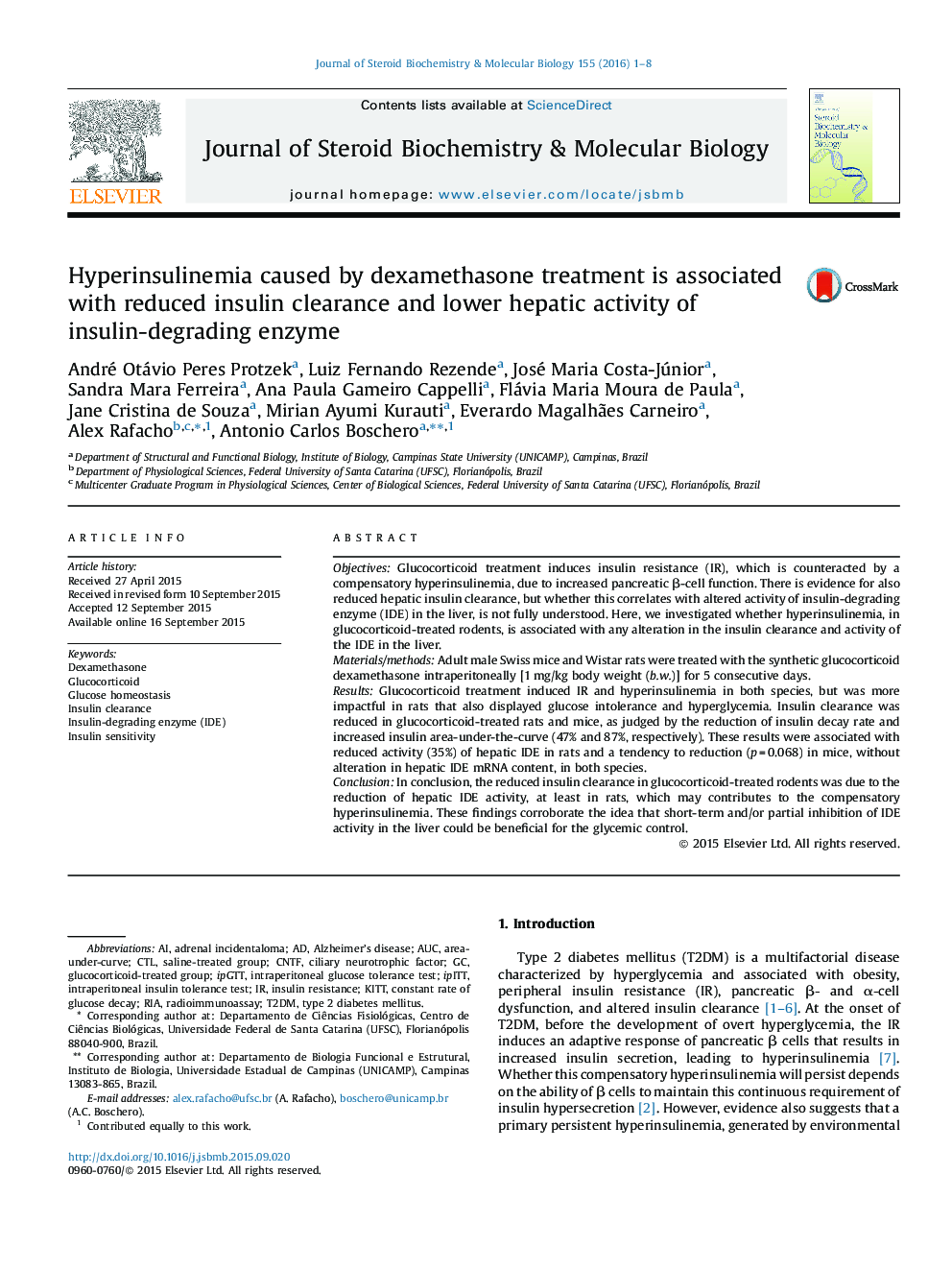| Article ID | Journal | Published Year | Pages | File Type |
|---|---|---|---|---|
| 1991356 | The Journal of Steroid Biochemistry and Molecular Biology | 2016 | 8 Pages |
•Dexamethasone (DEX) in excess causes insulin insensitivity and hyperinsulinemia in rodents.•DEX-induced hyperinsulinemia is associated to reduced insulin clearance in rats and mice.•Reduced insulin clearance is associated to decreased activity of hepatic IDE, mainly in rats.•Reduction in hepatic IDE activity results from post-translational modulation, at least in rats.•Downregulation of insulin clearance may be beneficial for the glycemic control.
ObjectivesGlucocorticoid treatment induces insulin resistance (IR), which is counteracted by a compensatory hyperinsulinemia, due to increased pancreatic β-cell function. There is evidence for also reduced hepatic insulin clearance, but whether this correlates with altered activity of insulin-degrading enzyme (IDE) in the liver, is not fully understood. Here, we investigated whether hyperinsulinemia, in glucocorticoid-treated rodents, is associated with any alteration in the insulin clearance and activity of the IDE in the liver.Materials/methodsAdult male Swiss mice and Wistar rats were treated with the synthetic glucocorticoid dexamethasone intraperitoneally [1 mg/kg body weight (b.w.)] for 5 consecutive days.ResultsGlucocorticoid treatment induced IR and hyperinsulinemia in both species, but was more impactful in rats that also displayed glucose intolerance and hyperglycemia. Insulin clearance was reduced in glucocorticoid-treated rats and mice, as judged by the reduction of insulin decay rate and increased insulin area-under-the-curve (47% and 87%, respectively). These results were associated with reduced activity (35%) of hepatic IDE in rats and a tendency to reduction (p = 0.068) in mice, without alteration in hepatic IDE mRNA content, in both species.ConclusionIn conclusion, the reduced insulin clearance in glucocorticoid-treated rodents was due to the reduction of hepatic IDE activity, at least in rats, which may contributes to the compensatory hyperinsulinemia. These findings corroborate the idea that short-term and/or partial inhibition of IDE activity in the liver could be beneficial for the glycemic control.
